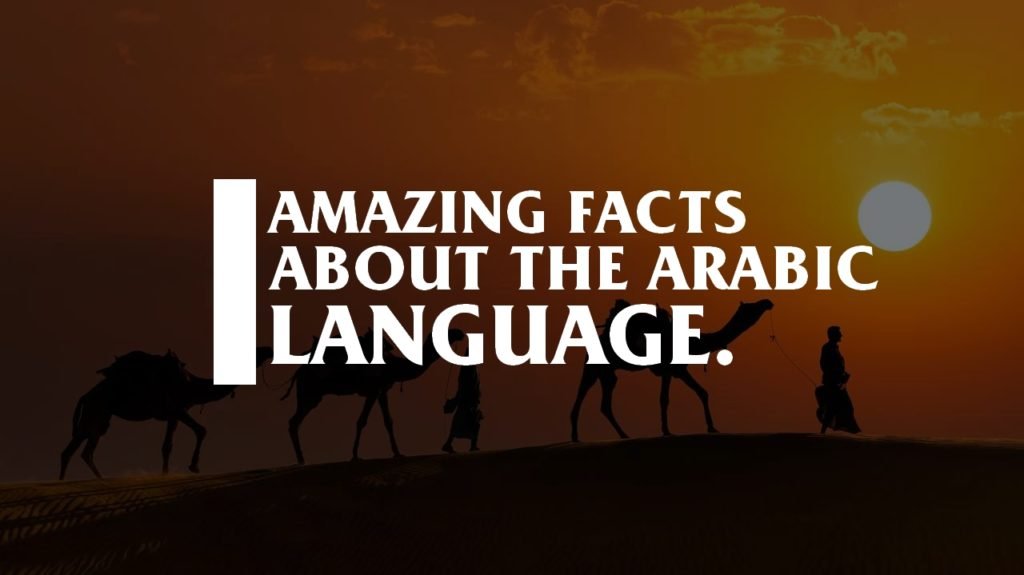Have you ever pondered the origins of the names of your state or city? Every location in the United States has a fascinating backstory behind its name, and the team at WordTips has compiled a series of informative maps to assist enthusiasts of trivia and etymology. These maps unveil the literal translations of state names and those of our major cities.
From Missoula (meaning “River of Ambush”) in Montana to Manchester (originating from “Breast-like Hill”) in New Hampshire, the origins of place names across the US span from Indigenous languages to influences from European settlers and geographical features. Whether you’re decoding a challenging crossword clue or aiming for victory in the next geography quiz during game night, here are the meanings behind the names of each US state, state capitals, and 178 of the largest cities across the country.
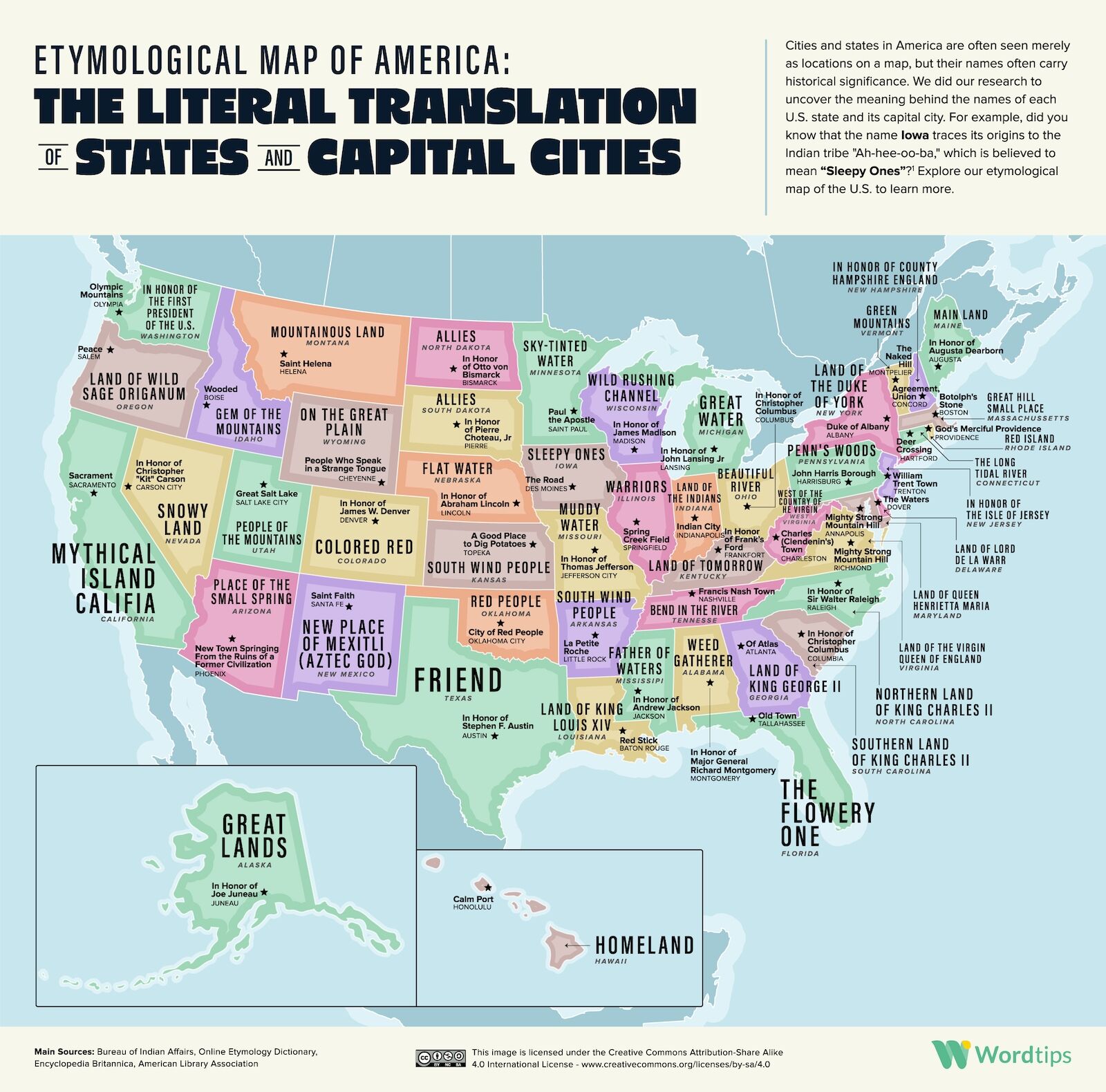
Unraveling the etymology of place names proves to be a complex endeavor. WordTips undertook this challenge by consulting a diverse array of sources. Drawing from the Bureau of Indian Affairs, the Online Etymology Dictionary, the Encyclopedia Britannica, the American Library Association, and regional news reports, the findings were cross-referenced from at least two consistent sources. It’s worth noting that many states and cities boast multiple narratives behind their names, but the ones presented are the most widely recognized.
Here are some of the most captivating discoveries regarding state names:
- Arizona: (Place of the Small Spring): Scholars believe the name Arizona stems from a native language, likely the Tohono O’odham spoken by Indigenous people in the region. The orginal name “Al Shon” translates to “place of little spring.”
- Iowa (Sleepy Ones): This name might have originated from a Dakota word for the Ioway tribe, possibly meaning “beautiful land” or even “sleepy ones,” depending on interpretation.
- Massachusetts (Great Hill Small Place): Massachusetts comes from an Algonquian word meaning “at the great hill.”
- Texas (Friend): The name Texas comes from the Caddo word “teysha” or “tayasha” which means “friend” or “ally” in the language.
- Wyoming (On the Great Plain): This might seem straightforward, but it’s derived from a Munsee Delaware language term “xwe:wamenk,” which translates to “at the big river flat.”
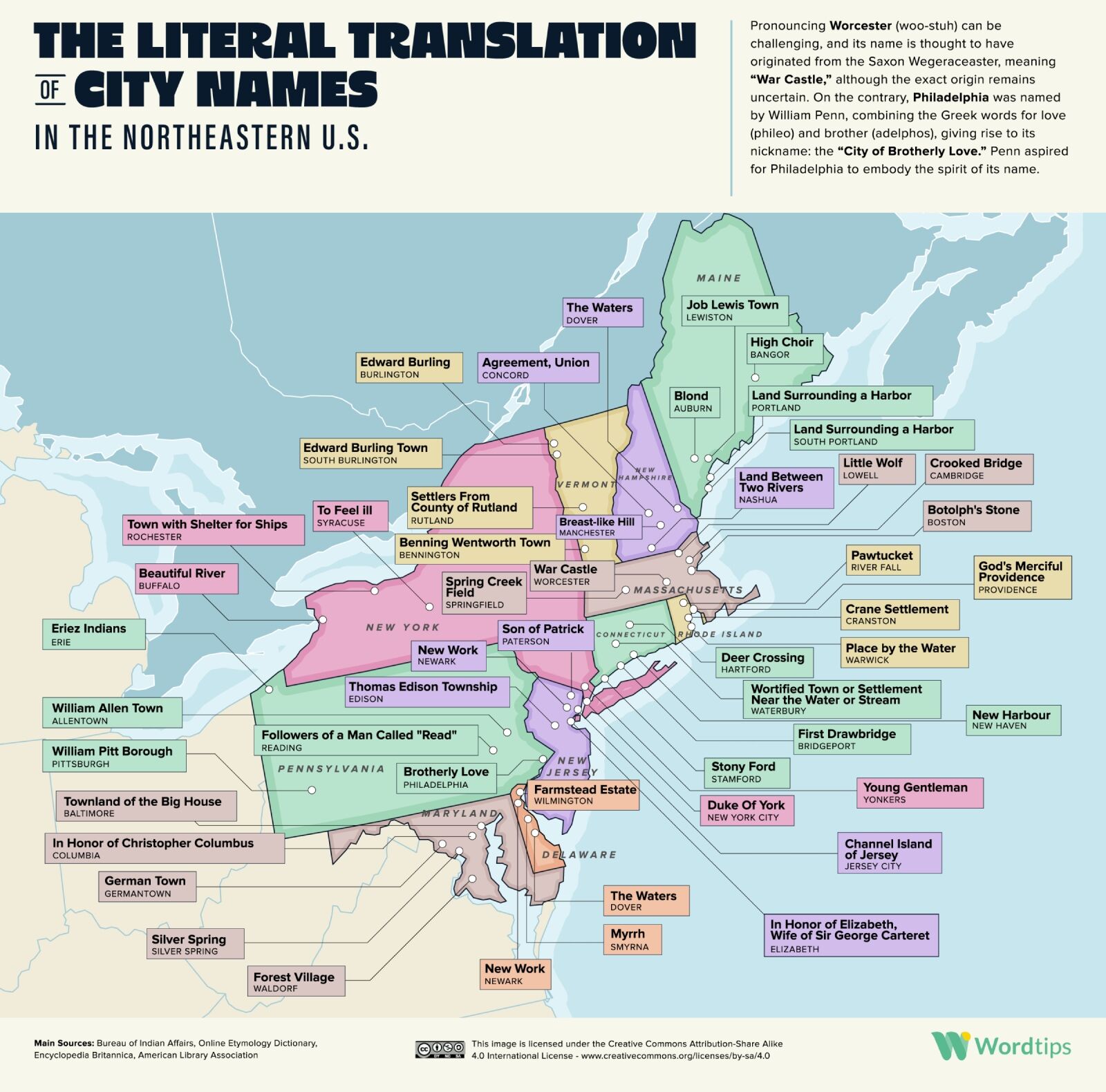
Northeastern cities like Boston (derived from “Botolph’s Stone”) and Baltimore (meaning “Townland of the Big House”) are rich in historical significance. Philadelphia’s name traces back to its founder, William Penn, and his vision for the city. Etymologically, it stems from two ancient Greek words: “philos,” signifying love or beloved, and “adelphos,” meaning brother. Thus, Philadelphia literally translates to “brotherly love.”
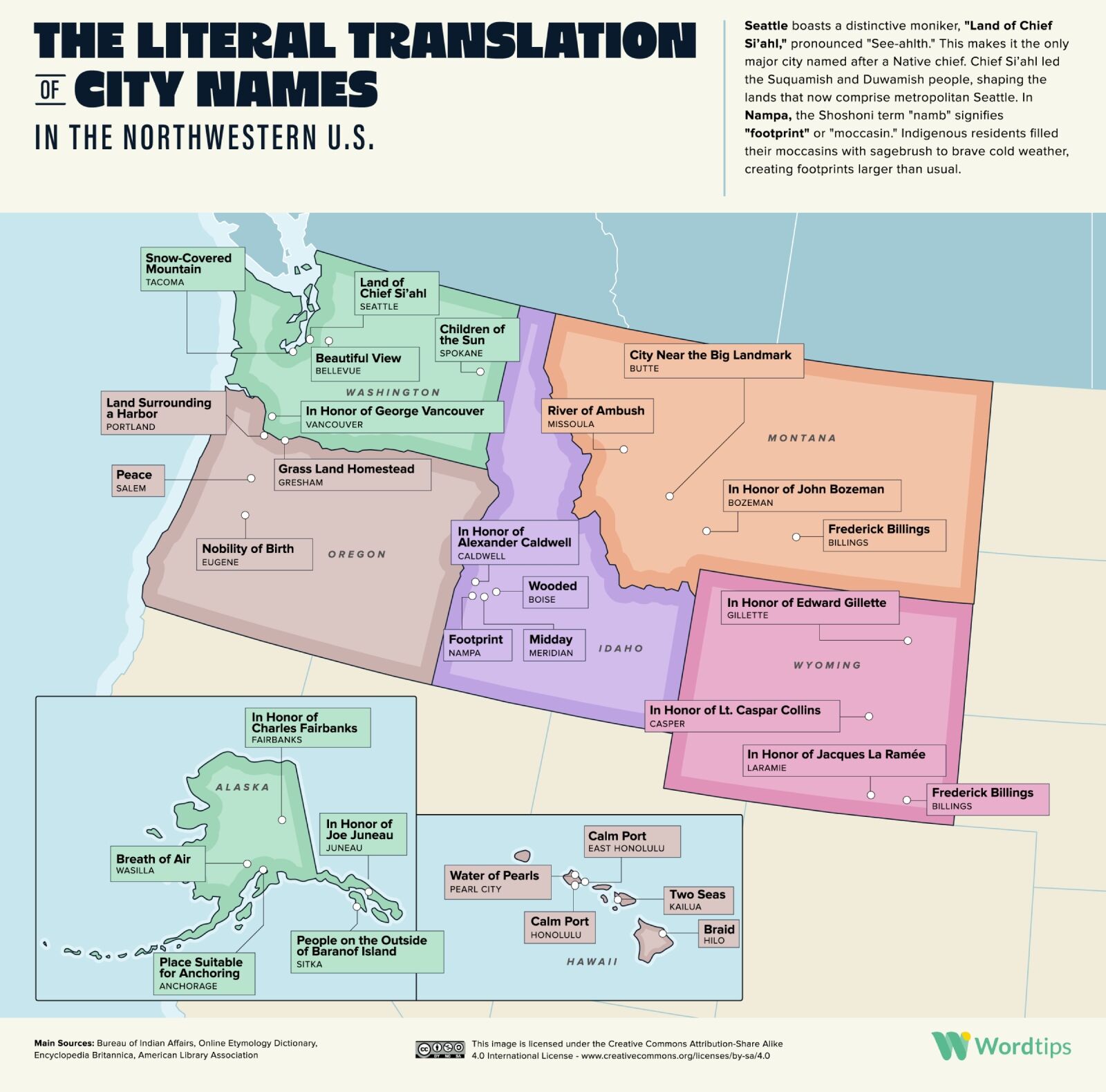
In the northwest, Salem (meaning “Peace”) and Missoula (translating to “River of Ambush”) offer intriguing insights, while Portland (indicating “Land Surrounding a Harbor”) is more straightforward in its meaning.
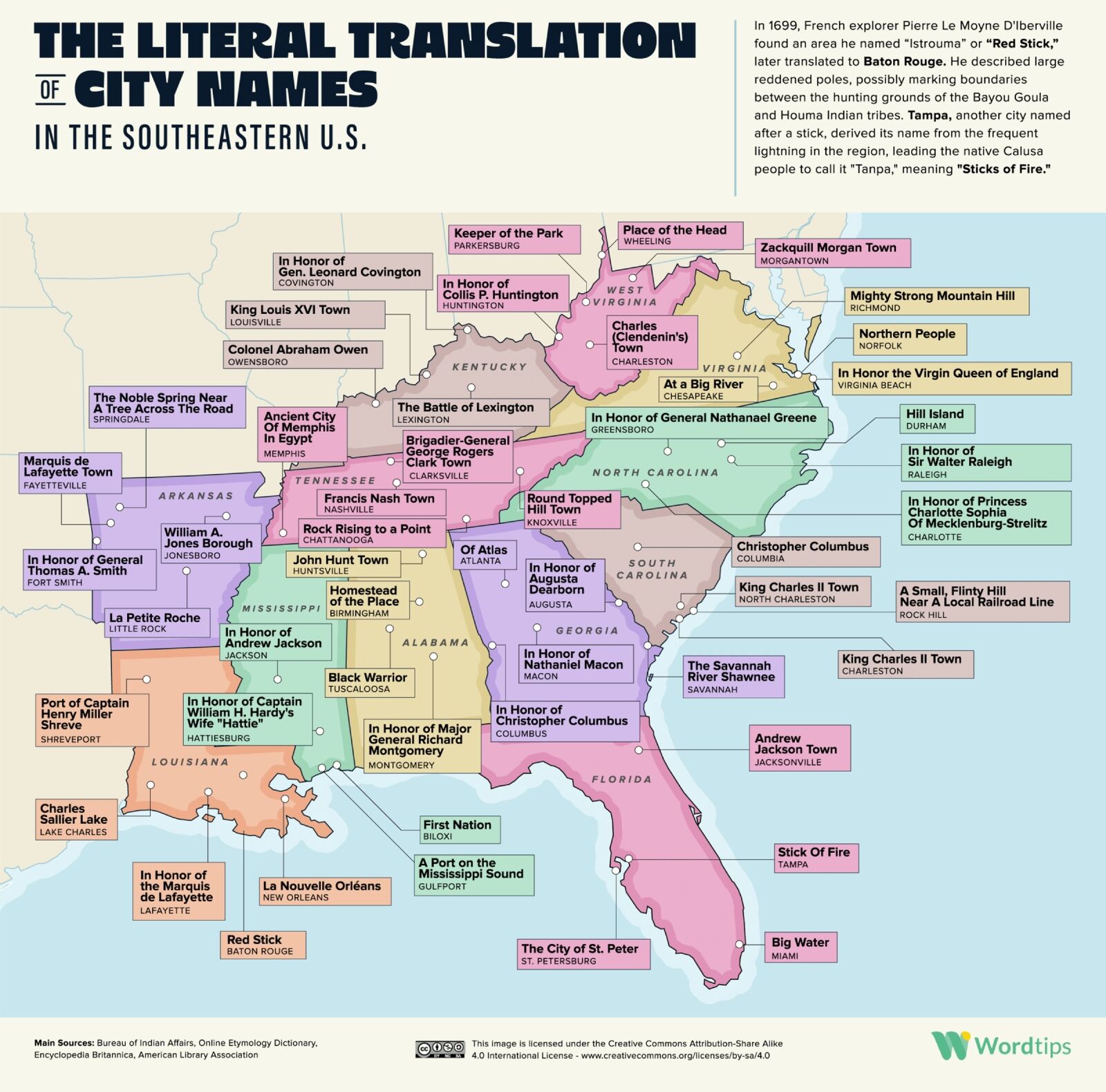
In the southeastern region, Charleston translates to “King Charles II Town.” It’s not uncommon for places worldwide to bear names associated with British royalty. In the case of Charleston, the city was established in 1670 under the reign of King Charles II. In homage to the king, the eight original proprietors christened the settlement Charles Town, which eventually transformed into the Charleston we know today.
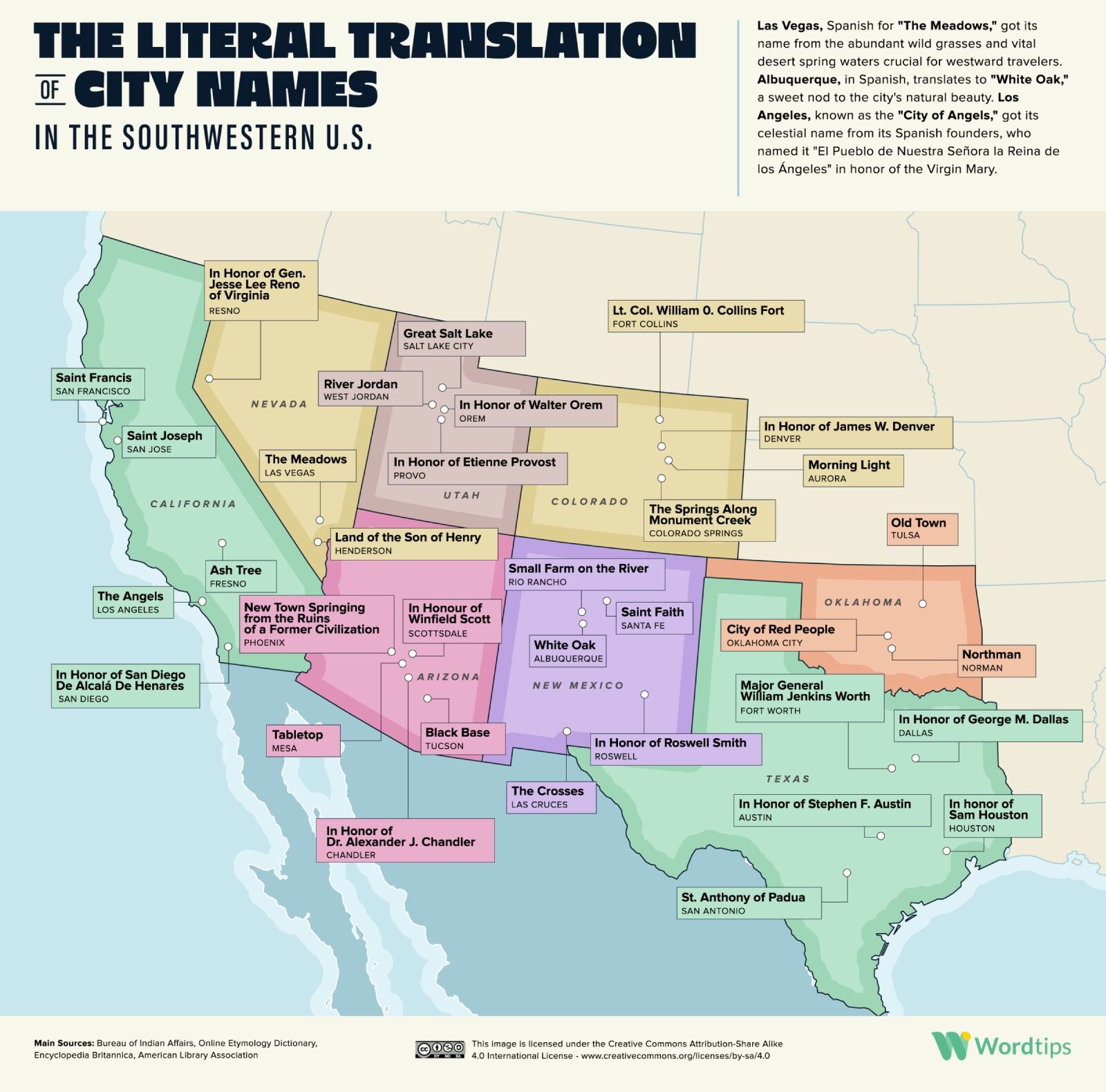
Las Vegas directly translates to “The Meadows” in Spanish. This designation emerged from the region’s natural features long before it evolved into the renowned gambling hub we recognize today. Early Spanish explorers were among the first Europeans to encounter this desert oasis. Contrary to its current arid landscape, the Las Vegas Valley once boasted abundant wild grasses nourished by underground springs, which served as a crucial water source.
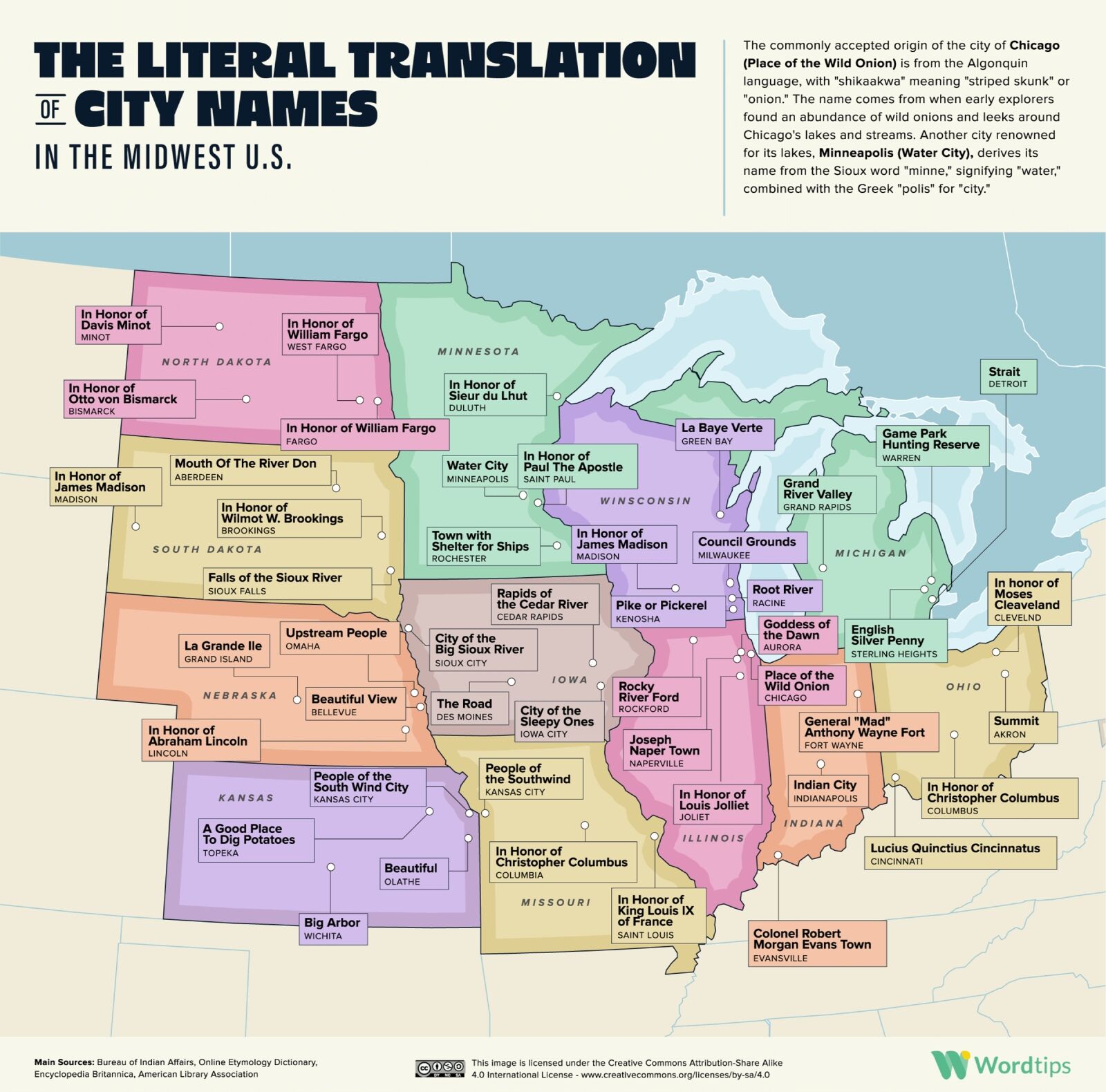
In the Midwest, you’ll find more commercially descriptive names, like “City of the Sleepy Ones” for Iowa City and “Place of the White Onion” for Chicago. Additionally, Omaha, meaning “Upstream People,” pays homage to the Omaha Tribe, Indigenous inhabitants of the region spanning northwestern Iowa and northeastern Nebraska. This name likely reflects their geographic positioning in relation to other tribes along the Missouri River.


